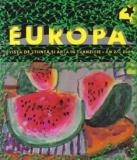UMANITATEA ESTE MAI IMPORTANTĂ DECÂT NAŢIONALITATEA DIALOG CU PREDRAG MATVEJEVIĆ
HUMANITY IS MORE IMPORTANT THAN NATIONALITY A DIALOGUE WITH PREDRAG MATVEJEVIC
Author(s): Branka BogavacSubject(s): Essay|Book Review |Scientific Life
Published by: Fondul Europa
Keywords: exile; country; Europe; culture
Summary/Abstract: Predrag Matvejevic became famous in Europe during the Yugoslavia collapse, thanks to his books and to his presence on the various international symposiums. Predrag Matvejevic wrote about exile in his books and tried to define the meaning of the phrase “to be an ex”. He said: ”Sometimes it is a wound, sometimes a scratch, and sometimes it is a praise that you did not accept to be a part of a disgrace.” Matvejevic owes a lot to his connections to the French culture. He also tried to weave the affl uence of this culture into our culture. “It is meaningless to discriminate spiritual values, it leads to the worst kind of provincialism. Countries can collapse as much as they want, once and for all should charges for stealing from each other disappear. Let Croats live in their country, Serbs in theirs, and Bosnians or Bosniacs in their own. But leave the gates open, as the world cultures do, because people and ideas should circulate, the exchange of the cultural and other goods should be free. I consider that to be the most desired model at this 2 termen „hibrid” (din democraţie+dictatură), folosit de autor când se referă la regimurile din estul Europei (n.t.) point. Nevertheless, often new generations decide how they will live. We have no rights to impose anything to them.” Matvejevic thinks that the modern Europe should be less Eurocentric than it was in the past, that it should be more open to the so called Third World Countries than the Colonial Europe was, that it should be less egoistic than the “party Europe”, that it should be “the Europe of Citizens” who reach hands to each other, and less “Europe of Nations” which were waging wars against each other.
Journal: Europa, revistă de literatură, artă, cultură şi tranziţie
- Issue Year: 2009
- Issue No: 04
- Page Range: 39-44
- Page Count: 5
- Language: Romanian

